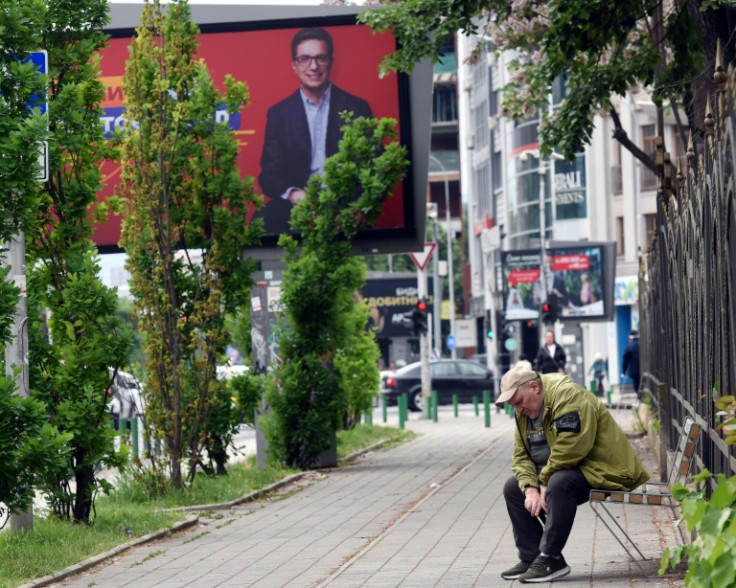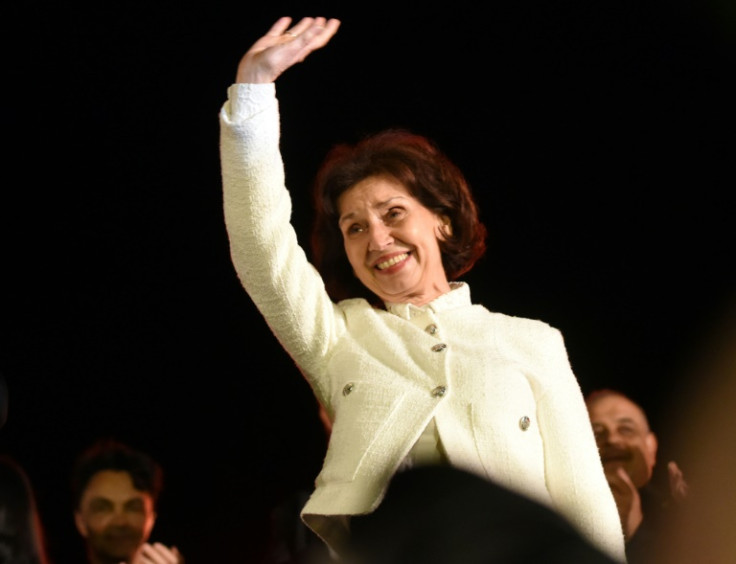N. Macedonia Chooses President In Election Warm-up

North Macedonia on Wednesday holds the first round of a presidential election seen as a key test for political parties squabbling over the country's stalled EU membership talks.
The elections in the Balkan state, which changed its name in 2018 from Macedonia to settle a historical dispute with Greece, overlap with a parliamentary election due in two weeks.
The seven presidential candidates have clashed over a key condition for EU membership: the recognition of the country's small Bulgarian minority in the constitution.
EU member Bulgaria has blocked the accession process for two years over the issue.
Two old political foes -- incumbent Stevo Pendarovski, backed by the ruling centre-left Social Democrats (SDSM), and Gordana Siljanovska-Davkova, backed by the main right-wing opposition -- are considered the main candidates for a likely run-off on May 8, with the latter leading in opinion polls.
The parliamentary elections will be held on the same day.
During campaigning, Pendarovski, a political science professor, vaunted the country's 2020 entry into NATO under his leadership.
"In my next mandate we will succeed in completing all the chapters with EU," he vowed.
"It won't be easy, but it will mean greater prosperity."
Siljanovska-Davkova and the VMRO-DPMNE party that backs her have called for the proposed constitutional change to be postponed until after North Macedonia has joined the EU.
At a recent rally, Siljanovska-Davkova, a retired law professor and former MP, promised voters "not to forget our national interests, which they (the SDSM) have not only forgotten but have trampled on".
The turnout on Wednesday will be closely watched as an indicator for the parliamentary elections, said Ana Petruseva, head of the Macedonia branch of regional investigative reporting outlet BIRN.
"The presidential elections' first round will be a dress-rehearsal for the parliamentary elections on May 8 and reveal the major political parties' standings", she told AFP.
Pendarovski won the 2019 election in a run-off against Siljanovska-Davkova.
But opinion polls now suggest the opposite: Siljanovska-Davkova leads with 26 percent support followed by 16 percent for Pendarovski.
The chances of the remaining five candidates are slim but their backing will be important for the runoff, Petruseva added.
The five include Foreign Minister Bujar Osmani, supported by the junior ethnic Albanian DUI party -- a partner in the ruling coalition -- and Arben Taravari of the opposition ethnic Albanian coalition.
The DUI has offered its support in the second round on condition that in future presidents be elected by MPs, which it hopes will lead to an ethnic Albanian holding the post.
Pendarovski and Siljanovska-Davkova oppose the idea, saying it is more democratic for the head of state to be chosen through a direct vote.
Ordinary voters said they were more interested in meeting ends meet.
"I hope that whoever wins will work on improving living standards and making a better future, especially for young people," one voter, public administration employee Sanja Jovanovic-Damjanovska, told AFP.

© Copyright AFP 2025. All rights reserved.





















